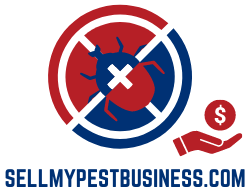Why Early Preparation is Key to a Successful Sale
Discover how starting the sale process early maximizes value and reduces stress.

Introduction
Selling a pest control business isn’t a transaction that can be completed overnight. Early preparation is essential for maximizing your business’s value, identifying potential obstacles, and ensuring a seamless handoff to the new owner. Starting the process months or even years in advance gives you the time to fine-tune operations, improve financial metrics, and address potential challenges before they arise. In this blog, we’ll dive into why early preparation is so important and the actionable steps you can take to get ahead of the curve.
1. Time to Improve Financials
Your financial records tell the story of your business, and buyers want a narrative of growth and stability. Starting early allows you to optimize these metrics for a better valuation.
Why It Matters:
- Buyers analyze at least three years of financial data. Strong trends in revenue and profitability can significantly increase your sale price.
- Weak spots in financials may deter buyers or lead to lower offers.

Action Tips:
- Increase Profit Margins:
- Review your expenses and cut unnecessary costs, such as redundant software subscriptions or excess inventory.
- Negotiate better rates with suppliers to reduce overhead costs.
- Enhance Revenue Streams:
- Introduce recurring service contracts to ensure predictable income.
- Offer add-on services, such as termite inspections or eco-friendly treatments, to boost your average transaction value.
- Clean Up Financial Records:
- Work with an accountant to ensure your financial statements, balance sheets, and tax returns are accurate and easy to understand.
- Identify and resolve discrepancies or outdated information in your records.

2. Opportunity to Strengthen Customer Relationships
Loyal customers are the backbone of a successful pest control business. Early preparation allows you to solidify these relationships and create the kind of customer base that buyers covet.
Why It Matters:
- A high retention rate signals reliability and customer satisfaction, two qualities that attract buyers.
- Long-term customers often generate referrals, adding to your business’s growth potential.
Action Tips:
- Introduce Loyalty Programs:
- Reward customers for repeat business with discounts, free add-ons, or exclusive perks.
- Highlight the success of these programs during buyer negotiations.
- Collect Testimonials and Reviews:
- Ask satisfied customers to leave positive reviews on platforms like Google and Yelp.
- Compile testimonials to showcase during the sales process, emphasizing customer satisfaction and trust.
- Transition Customers to Long-Term Contracts:
- Convert one-time service clients into recurring customers with multi-year contracts.
- Use special offers, like discounted rates for annual agreements, to incentivize long-term commitments.
3. Reduce Stress During Negotiations
When your business is well-prepared, the sales process is smoother and less stressful. Early preparation gives you the confidence to handle buyer questions and demands with ease.
Why It Matters:
- Buyers are more likely to move forward quickly with a seller who is organized and responsive.
- A lack of preparation can lead to delays, renegotiations, or a lower sale price.

Action Tips:
- Develop a Transition Plan:
- Create a detailed roadmap for transitioning operations, employees, and customers to the new owner.
- Include timelines for handing over customer contracts, introducing key team members, and transferring knowledge.
- Prepare for Due Diligence:
- Organize all necessary documentation, including financial records, operational procedures, and compliance certificates.
- Anticipate buyer questions about revenue trends, market position, and growth potential.

4. Identify and Address Weaknesses
Every business has areas for improvement, but identifying and resolving these issues early can make your business more attractive to buyers.
Why It Matters:
- Proactively addressing weaknesses reduces the risk of surprises during due diligence.
- Buyers are more willing to pay a premium for a business that operates efficiently and has minimal risks.
Action Tips:
- Conduct an Internal Audit:
- Assess your business’s operations, financials, and customer satisfaction metrics.
- Identify inefficiencies, such as high employee turnover or outdated equipment, and create a plan to address them.
- Upgrade Equipment and Technology:
- Replace old tools or software with modern, efficient alternatives.
- Highlight these upgrades during buyer presentations to show your commitment to operational excellence.
5. Build a Strong Team
Your employees are one of your greatest assets, and buyers value a knowledgeable, motivated team that can ensure a smooth transition.
Why It Matters:
- A strong team reduces the buyer’s workload during the handover period.
- High employee turnover can scare off buyers or lower your sale price.

Action Tips:
- Offer Retention Incentives:
- Provide bonuses, profit-sharing, or other perks to key employees who stay through the transition.
- Highlight these incentives to reassure buyers of team continuity.
- Invest in Training:
- Provide ongoing education for your team, including certifications or skill-building workshops.
- Demonstrate your team’s expertise and readiness to buyers.

6. Highlight Growth Potential
Buyers are always looking for opportunities to scale a business, and starting early gives you the time to identify and showcase these possibilities.
Why It Matters:
- Growth potential increases your business’s perceived value and can justify a higher asking price.
Action Tips:
- Develop a Growth Plan:
- Outline opportunities for geographic expansion, such as entering new markets or regions.
- Identify additional revenue streams, like offering specialized services (e.g., bed bug treatments or wildlife removal).
- Showcase Untapped Markets:
- Highlight areas where your business has yet to fully penetrate, such as underserved residential neighborhoods or commercial sectors.
Conclusion
Starting the preparation process early gives you the time to address weaknesses, strengthen your business, and present it in the best possible light to potential buyers. From improving financials to securing customer loyalty, every step you take now will pay off when it’s time to sell.
Stay tuned for next week’s blog post, where we’ll explore Key Strategies for Success in Early Business Sale Preparation to help you maximize your business’s value even further.
